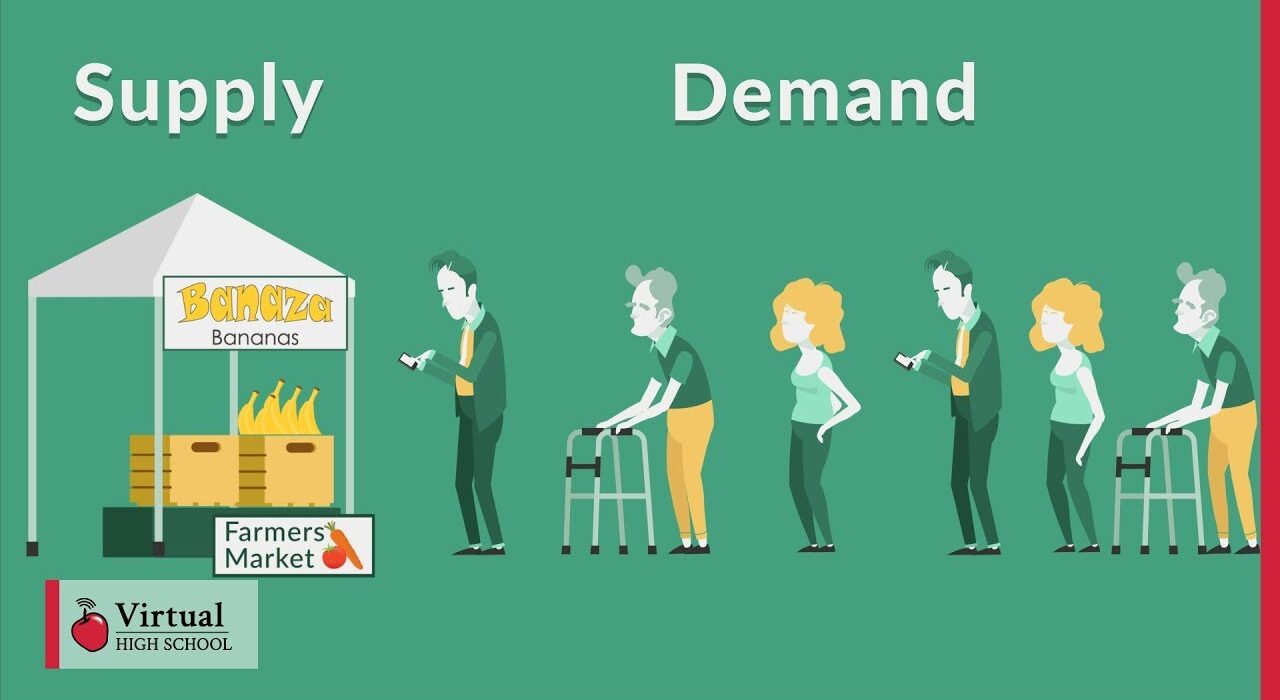When you are researching a company, one of the first few questions you need to get answered is what sort of company is it in the broader sense and what is a way to value companies?
You might come up with stuff like, ‘It has a monopoly in the market’, ‘It’s a fast-growing company’, etc.
But all the above responses are more granular when you look closer. But you will gain a different outlook when you generalize it even further.
Companies, in general, come under just two categories:
- Companies that own the demand
- Companies that own the supply

Here is a closer look at how these different companies look with real-world examples.
Way to value companies – Owning Demand Vs Owning Supply
Most people think that the person with all the supply is the king of the market. That person can then fix the price of that product/commodity and can have the confidence that whenever anyone wants that product anywhere in the world, he would be the one to deliver it to them.
In other words, a monopoly.
All the above points are definitely true. But on the flip side, owning the supply puts you in a fragile position.
You are always subject to market changes.
For example, let’s consider you own the entire production of sugar in the world. If anyone wants to make cakes, cookies, sodas, literally anything that needs to taste sweet they would have to come to you asking for sugar.
This puts you in a fabulous position. You dictate the market, price the product as you wish because guess what, they have nowhere else to go. But all this is always subjected to market changes.
Suppose people have realized that sugar is bad for your health and researchers have found better and healthier alternatives for sugar.
Let’s introduce Stevia into the picture.
More and more brands are slowly shifting towards stevia because they want to provide healthier options for their consumers to meet that demand.
Slowly the need for your sugar goes down, and in no time you have lost the pricing power and demand you had in the market.
All this because you were exposed to market changes.
Now let’s consider that you own the demand.
For example, let’s consider you are a contractor with whom all the companies deal with for their sugar needs. You are the only contractor in the country and companies are always reaching out to you asking for better prices, alternate options, etc. (a real hypothetical example for the sake of the argument).
Irrespective of whether the consumer wants real sugar, stevia sweetener, calorie-free sweeteners, artificial sweeteners, etc, they want that sweetener in the end.
Companies that produce sugar and other alternatives will need to approach you to find buyers. So in this case, irrespective of the market changes, you will always have the demand and you are not affiliated to any one source of supply. You simple deliver what the companies are looking for.
This is a much better place to be in. It is just that you need to make sure you don’t allow other competitors to creep in at any possible point of contact.
Now, let’s look at some real-world companies that own the demand.
Companies that own the demand
Anyone anywhere who is looking to find anything about anything gets onto google. It is as simple as that.
Google controls the demand so much that they are the default place people think of when searching for anything. They are so ubiquitous that their name has essentially become a verb.
“I’m googling about pancakes.”
Since Google is the place that hosts the demand, brands have no other choice but to flock to them and pay whatever price they demand for sending people to their website/store.
This is more evident when you start to analyze who could be Google’s possible competitor.
*drumroll* It is Amazon.
If you thought Bing, then you get brownie points, but it is not a threat to google. Let me explain why.
Google makes money when people search for a certain kind of product or service and click on the brands that offer that product/service who have advertised it on google.
Suppose for searching any product, they directly go to Amazon, search for it, make the purchase there, and never for once think of searching google for the same. That is a threat to google.
As long as people think of search engines when they want to buy products then Google is fine, then comes brand positioning and other aspects into the mix. But this scenario is fine.
The threat is people bypassing google and directly going to landing pages for products/services.
To prevent bypassing and more similar threats to their business model, google needs to be present at every touchpoint for the consumer.
That is why they have created devices people use to access the internet with (Chromebooks, google phones), they made an open-source operating system that runs on devices (Android), the browser to access the internet (Chrome), the search engine to search for the page you want on the internet (Google).
Based on what they search and the volume of searches, Google goes about creating additional products (Google Maps, Gmail, YouTube, etc) and charges nothing for it. Because their goal is to make money off ads and not through product usage fees.
Google pays Apple $12 Billion to be their default search engine. This is to capture the people using the largest OS in the world.
Google is present in the two biggest OS in the world, iOS, and Android. They control the best browser, Chrome. They are present in all media formats (text, images, video). They are essentially present at every possible touchpoint.
It has now come to a point where your business may not succeed if you do not work with Google, either through SEO or Adwords.
You can literally bet that this company makes bank.
Companies that own the supply
Netflix
Netflix provides a steady stream of content. They have a near-infinite supply of movies and shows.
I saw a tweet sometime back where it mentioned that if you watch Netflix every minute without sleeping from the minute you were born till the day you die at an old age of maybe 80 or 90, you still would not complete the entire Netflix library. That is how much supply they have.
With all that supply, you can essentially ask the question as to what are they actually serving? They are not serving content, they are serving ‘Entertainment’.
This is the reason why Netflix’s competitors are not only Prime or Disney+. It is Twitch, Xbox, a theme park, restaurants, movie theaters, bars.
In general, Netflix is competing for entertainment minutes.

They are even competing with a bar that opened down the street. Netflix needs to entice you to watch their content after work instead of going down to that bar for social interaction and a pint.
If you find that bar to be amazing and you go there often, you might even cancel your Netflix subscription because you cannot seem to find the time to watch anything.
They are competing with Twitch because people decide to watch other people play games and learn from them than sit and watch a movie.
This gets more evident when you realize that Netflix has released multiple simple short games on its mobile app and they are looking to get into gaming.
This should give you an indication that they are not a streaming service, but an entertainment service battling for entertainment minutes.
>> Interesting take on Why Netflix is moving into gaming?
Don’t be surprised if theme parks and Netflix show-based pop-up bars/social events come up in the near future.
Demand vs Supply: Which way to value companies is better?
It evidently depends on the company and its future plans. This article is not to dampen your expectations of supply-side companies. But to give you perspective over some bloated valuations I have been seeing recently.
Owning the demand will always play out well in the long run. It is not to say that these companies are not subject to any threats. Of course, they have copycats, they have competitors, but the ultimate thing is that it does not lead to saturation and they always focus on making their core product better.
But the supply side companies are subject to saturation.
Netflix was cool and amazing a few years ago. The pandemic accelerated the rise of streaming platforms and suddenly there is too much content and not enough eyes.
Now Netflix is facing a loss of subscribers and it is getting to the point of saturation which leads to shifting its focus away from the main product (movies to gaming).
In the current world, there is too much content, too many t-shirt companies, too many poster companies. All this is because Shopify and digital ads have made the cost of entry and cost of failure pretty low.
So an average person gets many shots at it, in other words, there is a lot of supply.
People see the demand and try to service that demand. You always need to look to capture demand, sometimes the supply companies come and go like fads.
That is why gaining an audience is very important. Your audience is your demand.
This is why Mr. beast will never go out of business unless he gets canceled. People love the Beast brand. He can literally create anything and slap the Beast logo on it and it will SELL (burgers, t-shirts, chocolate bars). The demand he owns is the people in love with Mr. Beast.
On the other side, you can create products to cater to your audience. Like how Steph Smith, Anthony Pomp, etc do it.
Final thought on the way to value companies
I would end this article with something to ponder over.
There was the Dogecoin season, there was the Shiba Inu season, there was the Avax season, the Litecoin season, etc. All these blockchains came into the spotlight and left.
But through all these seasons, Coinbase, Binance, FTX were the first point of contact for an average person who wanted to buy those coins and they serviced the demand well.







